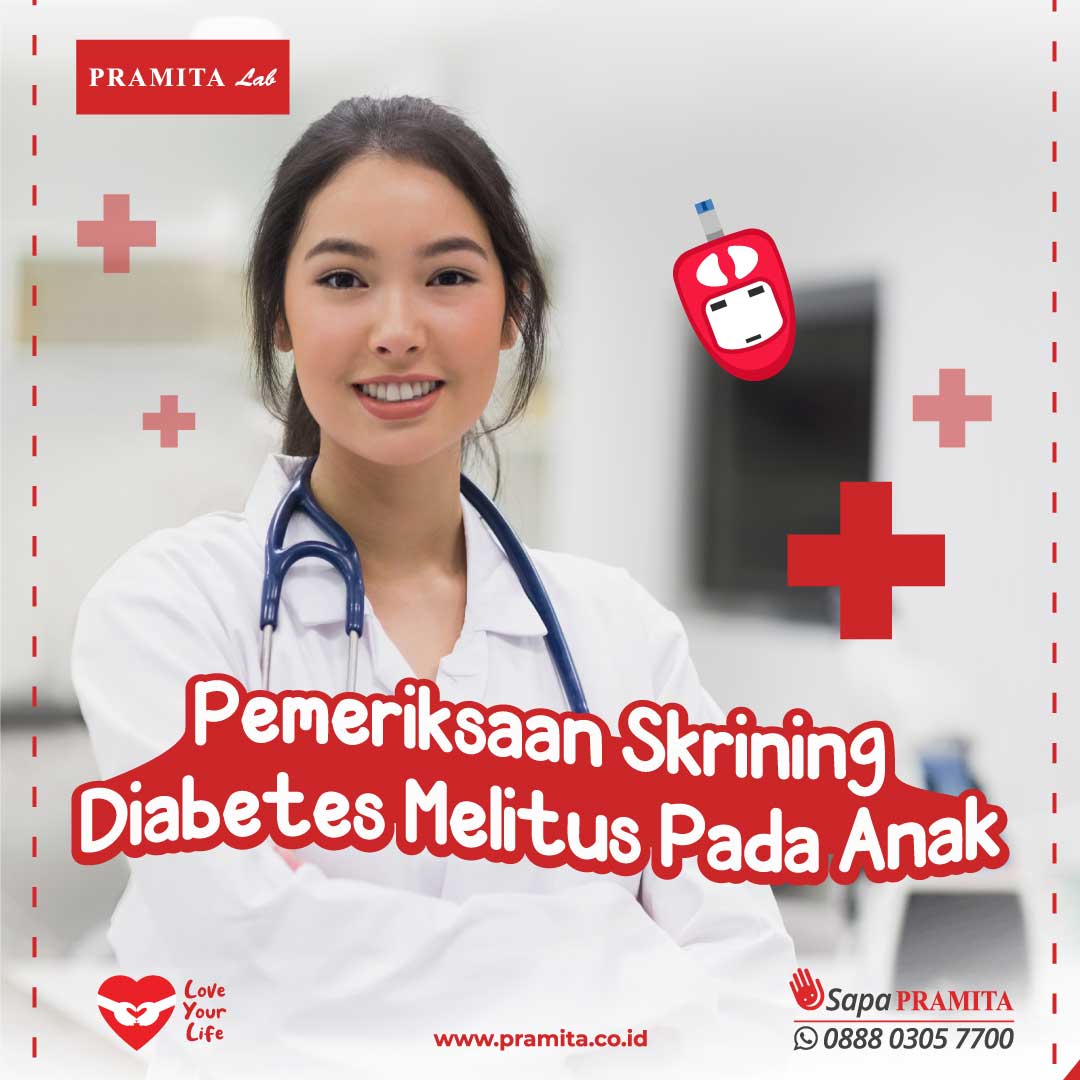Healthy Inspirations

DIABETES MELLITUS EXAMINATION IN CHILDREN
Wed, 22 Nov 2023To screen for diabetes mellitus, several tests can be carried out:
1. History
Many patients suffering from type-1 DM have no early symptoms so early detection of this disease is quite difficult.
The most common symptom of DM in children is polyuria, other symptoms are usually not reported directly to the doctor.
2. Physical Examination
Physical examination findings in patients with type 1 DM can be normal.
If the patient presents in an acute condition, namely diabetic ketoacidosis, Kussmaul respirations, signs of dehydration, hypotension and changes in mental status can be seen.
3. Blood Glucose Examination
One of the criteria for diagnosing diabetes is clinical symptoms and a random blood glucose level > 200 mg/dL or a fasting blood glucose level ≥ 126 mg/dL or an Oral Glucose Tolerance Test (OGTT) ≥ 200 mg/dL. In patients who have been diagnosed, blood sugar checks need to be carried out 3-4 times a day if the patient receives several insulin injections in one day or is on insulin pump therapy.
Fasting Plasma Glucose Assessment
• Normal: < 100 mg/dL
• Diabetes: ≥ 126 mg/dL
Assessment of the Oral Glucose Tolerance Test
• Normal: < 140 mg/dL
• Diabetes: ≥ 200 mg/dL.
4. HbA1c (Glycosylated Hemoglobin) examination
This examination reflects the glycemia condition during the last 8-12 weeks. Patients do not need to fast when carrying out this examination. HbA1c should be monitored 4-6 times per year in younger children and 3-4 times per year in older children. The HbA1c target for all age groups is less than 7.5%.
5. Ketone examination
Blood and urine ketone tests are carried out when hyperglycemia is uncontrolled, sick and there are signs of DKA. Blood ketone testing is more reliable in the treatment and diagnosis of DKA. A study by Pulungan et al20 in Indonesia showed that the blood ketone test β-hydroxybutyrate had a better correlation with pH and bicarbonate levels compared to the urine ketone test. Normal blood ketones: < 0.6 mmol/L. Blood ketones > 3.0 mmol/L are usually accompanied by acidosis so they must be taken to the hospital immediately.
Ketone examination is carried out when:
• Illness accompanied by fever and/or vomiting
• If the blood glucose is above 250 mg/dL in an unhealthy child or if the blood glucose level rises above 250 mg/dL persistently.
• When there is persistent polyuria accompanied by increased blood glucose levels, especially if accompanied by abdominal pain or rapid breathing.
• Ketone testing should be performed in younger children or in patients using insulin pumps.
6. C Peptide examination
This examination is to determine the levels of peptides in the blood of diabetics. Peptides are substances released by pancreatic beta cells. These cells also produce insulin. Insulin is a hormone that functions to help body cells absorb and utilize blood sugar as energy. Pancreatic beta cells release insulin along with peptides at the same time.
This examination is used to help differentiate between type-1 and type-2 DM. In type-1 DM, the pancreas produces little or no insulin and C peptide with C peptide levels < 0.82 mg/dL. Meanwhile, type 2 diabetes mellitus produces insulin but resistance occurs, so C peptide levels are higher.
BIBLIOGRAPHY
1. Akil AAS, Yassin E, Al-Maraghi A, et al. Diagnosis and treatment of type 1 diabetes at the dawn of the personalized medicine era. J Transl Med, 2021. 19, 137.
2. Anisha SP, Ryadi F, Nugroho HS. Blood Gucose Level and HbA1C in Pediatric Patients with Diabetes Mellitus Type 1. Althea Medical Journal. 2017;4(2):217-20.
3. Skyler JS, Bakris GL, Bonifacio E, Darsow T, Eckel RH, Groop L. Differentiation of diabetes by pathophysiology, natural history, and prognosis. Diabetes 2017;66:241-55.
4. Indonesian Pediatrician Association. Registry of type-1 DM in children [unpublished]. Jakarta: IDAI; 2018.
5. World Health Organization. Diabetes Mellittus: Report of a WHO Study Group. World Health Organisation. Geneva-Switzerland. 2015. S5-36
Author: dr. Nirma Amalia (PRAMITA Clinical Laboratory Medical Consultant Doctor Jl. Karunrung No. 9, Makassar)

